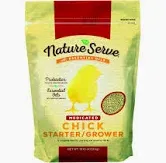
Okt . 10, 2024 19:13 Back to list
Effective Coccidiosis Treatments for Chickens in Poultry Farms and Hatcheries
Coccidiosis Medication for Chickens A Comprehensive Guide
Coccidiosis is a common and often devastating disease affecting chickens, caused by a group of microscopic parasites known as coccidia. These parasites invade the intestinal walls of infected birds, leading to poor nutrient absorption, severe weight loss, and sometimes death. Understanding effective medication and management strategies is crucial for poultry farmers aiming to maintain healthy flocks and minimize economic losses.
Understanding Coccidiosis
Coccidiosis is caused by various species of the Eimeria parasite, each targeting different parts of the chicken’s digestive system. The disease is particularly prevalent in young, growing birds, as their immune systems are not yet fully developed. Symptoms of coccidiosis include lethargy, decreased feed intake, diarrhea (often bloody), and a notable drop in egg production. Diagnosing coccidiosis typically involves observing clinical signs and conducting fecal exams to identify oocysts in the feces.
Prevention is Key
Preventing coccidiosis is more effective than treating it after an outbreak occurs. Key preventative measures include maintaining strict biosecurity protocols, ensuring proper sanitation, and managing flock density. Housing conditions should be kept clean and dry, as coccidia thrive in moist environments. Additionally, rotating pastures and minimizing stress factors—such as overcrowding and sudden temperature changes—can significantly reduce the risk of coccidiosis outbreaks.
Medication Options
When prevention is insufficient, medication becomes critical. Various types of anticoccidial medications are available, which can be classified into two main categories ionophores and chemical compounds. Ionophores, such as monensin and lasalocid, are commonly used in feed formulations to help control coccidia populations in chickens.
coccidiosis medication for chickens factory

Chemical treatments, such as amprolium and sulfaquinoxaline, are also effective but require careful management to ensure proper dosage and avoid drug resistance. These medications can be administered via drinking water or mixed into the feed, depending on the specific product’s instructions.
1. Ionophores These compounds are widely used in poultry production. They work by disrupting the ion balance in coccidia, inhibiting their growth and reproduction. Ionophores are generally safe and have a low risk of developing resistance.
2. Amprolium As a thiamine antagonist, amprolium limits the availability of thiamine to coccidia, slowing their growth. It is often administered during outbreaks and can be used as a preventative measure in the feed for broilers.
3. Sulfaquinoxaline This is an effective treatment for acute coccidiosis cases, especially when symptoms are severe. It can be given in the drinking water and should be followed by supportive care, including hydration and electrolyte supplementation.
Monitoring and Follow-Up
After initiating treatment, it is crucial to monitor the flock closely for any signs of improvement or worsening symptoms. In cases where medication fails, it may be necessary to reassess the flock’s management practices, including diet, housing conditions, and overall health protocols. Farmers should also conduct regular fecal examinations to ensure that coccidia levels remain low.
Conclusion
Coccidiosis represents a significant challenge for poultry farmers; however, with the proper use of medication and preventive measures, it is possible to minimize its impact. A combination of effective anticoccidial drugs, proper flock management, and biosecurity measures can help maintain the health of chickens, ensuring a productive and profitable poultry operation. By staying informed about the latest research and treatment options, farmers can successfully combat this pervasive disease and foster a thriving poultry industry.
-
Sulfamono Methoxine Supplier High-Quality Veterinary Antibiotic
NewsMay.18,2025
-
Premium Staphylococcus Products Trusted Manufacturer & Supplier
NewsMay.18,2025
-
Premium Lincomycin HCl API Manufacturers Trusted Supplier & Factory
NewsMay.17,2025
-
Mad Cow Disease Test Kits Reliable BSE Detection Solutions
NewsMay.17,2025
-
Best Anti-Inflammatory for Cattle Trusted Manufacturer & Supplier
NewsMay.17,2025
-
Confusion Solutions Reliable Factory, Manufacturer & Supplier
NewsMay.16,2025




